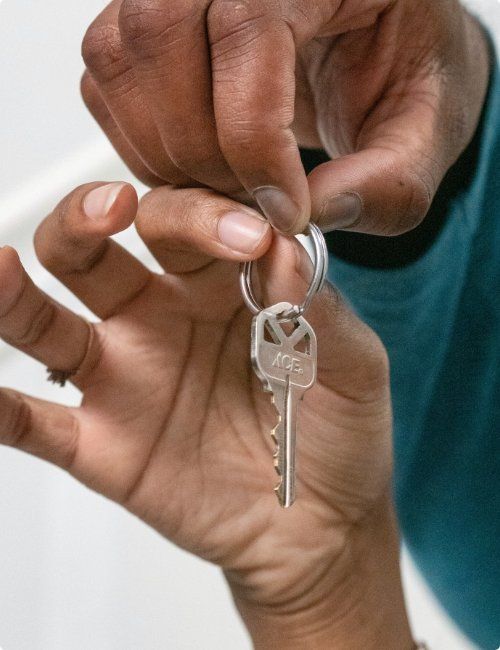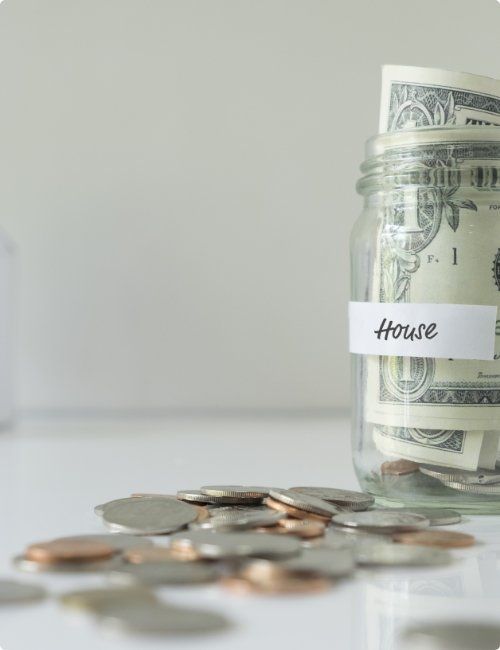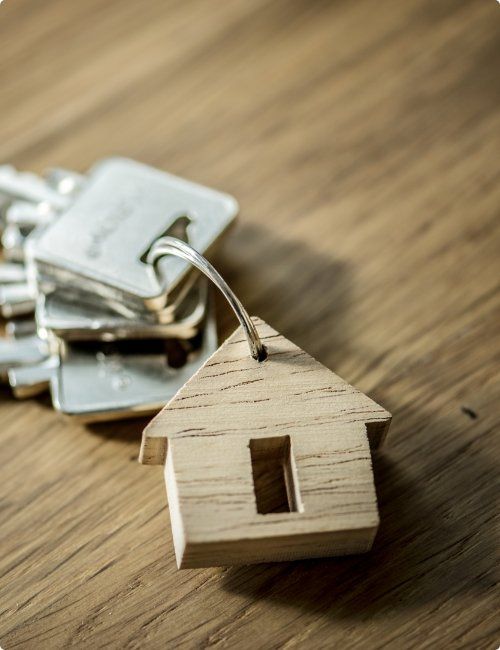How Banks Take Advantage of Home Buyers
Lenders take every penny they can legally get from home buyers, and understanding
how they do it can save you four, five, or even six figures. Find out how below
The path to homeownership starts with a whole lot of stress. Researching loan options, interest rates, and mortgage lenders is a full-time job.
Still, the reward of homeownership is well worth it.
So, you’ve signed the paperwork and you’re eager to enjoy your dream home. Besides the monthly mortgage payments, you’re more or less in control, right?
Not quite. That’s just what the bank wants you to think.
In reality, your lender is taking advantage of every penny you give them, and understanding how they do it could save you thousands. Keep reading as we explain how the bank takes advantage of homeowners and what you can do to avoid the pitfalls.

What’s the 28/36 Rule?
The 28/36 rule is probably the most important rule for you to know, especially if you’re a new homeowner.
Essentially, you should be spending no more than 28% of your gross (pre-tax) income on monthly housing expenses, and no more than 36% of your gross income on housing-related expenses on other debts.
Your lender will use this rule to determine how much to lend to you, but it’s also a great rule for you to live by—it can help you figure out what you can really afford when it comes to taking on debt.
Interest Rates
In 2020 alone, lenders across the U.S. are estimated to have made a record $3.83 billion on mortgage loans.
Your mortgage may only be a drop in the bucket. Still, understanding your interest rate calculation helps reveal how your cash goes to work for the bank.
If you’re like most homeowners, you’ll probably pick a 30-year loan term. In comparison to a 15-year mortgage, you’ll pay a lot less month to month, but your total payment after 30 years might shock you.
Let’s say you get a $300,000, 30-year mortgage with a 3% interest rate.
Even with that relatively low interest rate, you’ll have paid $455,332 due to interest. That’s an extra $155,332 on top of your original loan amount!
And all that interest goes straight to your lender’s pocket—pure profit.
Plus, the bank will make sure they get the bulk of your interest (their profit) upfront. By front-end loading your loan, you’ll pay the bank first and your actual loan amount later.
The fact is, whether you go with a 15-year or 30-year loan term the bank is going to make money on your interest payments.
Because of front-end loading, a lower interest rate might not be the best decision for you. So, you’ll need to review your interest rate options carefully.
Mortgage Points
If you’re hoping to keep some money in your pocket each month, you might want to consider buying mortgage points.
Also known as discount points, they can help cut down your mortgage interest rate by .0125% per point. Generally, one mortgage point will cost 1% of your mortgage principal.
So, let’s say that you’re applying for a $300,000 loan, this time with a 3.5% interest rate. If you buy 2 points for $6,000 you’ll get a 3% interest rate and you’ll save around $82 on your monthly payment.
That doesn’t seem like much, but over a full 30-year term you’ll save around $29,636 in interest…
Provided you plan on staying in your home for a while!
If you leave your mortgage quickly or decide to refinance, you’ll probably end up losing money.
This is because you haven’t hit your break-even point—the time it takes for your savings to match the amount you paid for the points.
In our scenario, the break-even point is around 6 years. So, run the numbers and make sure discount points are worth your time before paying for them.
Origination Fees
Your lender has to make money on their loan services.
So, some lenders will include an origination fee for their services. Generally, you can expect this fee to cost anywhere from 0.5% to 1.0% of your loan amount.
So, if you apply for $300,000 with a 1.0% origination fee, you’ll pay $3,000.
Origination fees don’t amount to much overall, and you may be able to pay them off upfront.
But make sure to take a close look at the closing costs in your mortgage paperwork. Along with the standard fee your lender charges, they might try to include junk fees.
Steep prices for your loan application, loan underwriting, loan processing, or broker rebates is a telltale sign of ‘junk fees.’
Beware of mortgage options without origination fees too. Some lenders will leave out origination fees, making your initial payment more attractive on paper.
The lender is going to make money somehow, and a loan without origination fees almost always means a higher interest rate. This could cost you tens or even hundreds of thousands of dollars during your loan term if you’re not careful.
Yield Spread Premiums
If you’re working with a mortgage broker (a middleman) instead of going directly to the lender, yield spread premiums (YSP’s) might be involved.
Essentially, a yield spread premium is the payment a broker receives from the original lender for their services. The broker will sell you a slightly higher interest rate than the rate you actually qualify for.
The broker keeps the difference between the lower rate you qualify for, and the rate they sell you as commission.
Sounds like a great way to lose money, right?
Not exactly.
Yes, you’ll pay a higher interest rate during your loan term, but a YSP can eliminate some of your upfront costs.
So, if you’re planning on keeping your mortgage only for a short time, a YSP could be a great option for you.
Don’t forget the fine print!
Yield spread premiums were originally created to protect the borrower—by paying a mortgage broker a YSP, the borrower could avoid any out-of-pocket fees.
But over time, brokers began including the cost of a YSP in the borrower’s payments. Eventually, it became just another fee to put money in the lender’s pocket.
While yield spread premiums are heavily regulated today, fraudulent lenders may try to charge you extra, especially if you don’t pay attention to the fine print.
You might only pay an origination fee, a YSP, or a balanced combination of both, depending on your loan structure.
Look out for unusually high costs, especially if your lender gives you a bill for a YSP and an origination fee.
Paying attention to these fees could save you thousands before you even begin your loan term.
Money in the Bank
As they say: time is money.
That’s especially true for your bank/lender. The longer they keep you under their thumb, the more you’ll pay.
There’s no way to avoid the lender entirely… unless you plan on paying for your home in cash.
That’s not a reasonable solution for us, and we’re guessing it’s not a realistic solution for you either.
So, we created a better way.
And no—it doesn’t involve selling everything you own to buy that home you’ve always wanted.
It’s called the Money Max Account, and United Financial Freedom has been perfecting it for years to help homeowners like you get out of debt ASAP.
Your Money, Your Decision

Your mortgage and other debts probably feel like an impossible burden to carry.
Even though you work hard to make a living, it’s still not enough to lift the weight of all that debt off of your shoulders.
That’s where the Money Max Account comes in.
With Money Max, you can pay off your mortgage in as little as 7-10 years. By using advanced banking strategies, the Money Max Account tracks your debts, payments, and expenses 24/7.
The result? A clear path out of debt tailored specifically to your needs.
That means more money back in your pocket where it belongs, and less power for the bank.
Money Max doesn’t work like your bank or lender either. You’ll always decide where your money goes and how it’s used to pay off your debts…
You won’t have to worry about spending thousands on interest payments, or losing money to hidden lender fees.
With the Money Max Account, what you see is what you get—a comprehensive account designed to provide you and your family with the lifestyle you choose.
Why pay the bank any unnecessary profit, or haggle with mortgage lenders?
Don’t let the bank decide how your money is spent…
Money Max has already helped homeowners eliminate over 2 billion dollars on their mortgage and other debts, and it can work for you too.
Ready to take the next step towards financial freedom? Visit our website for more information, or call now. Our representatives are standing by to answer all of your questions.
Phone: (877) 794-5700
Fax: (716) 799-1155
Browse Our Website
Email:
COntact Information
Address:
3960 Harlem Rd Ste 12B
Amherst, New York 14226
Business Hours
Monday: 10-5
Tuesday: 10-5
Wednesday: 10-5
Thursday: 10-5
Friday: 10-5
Saturday: Closed
Sunday: Closed







